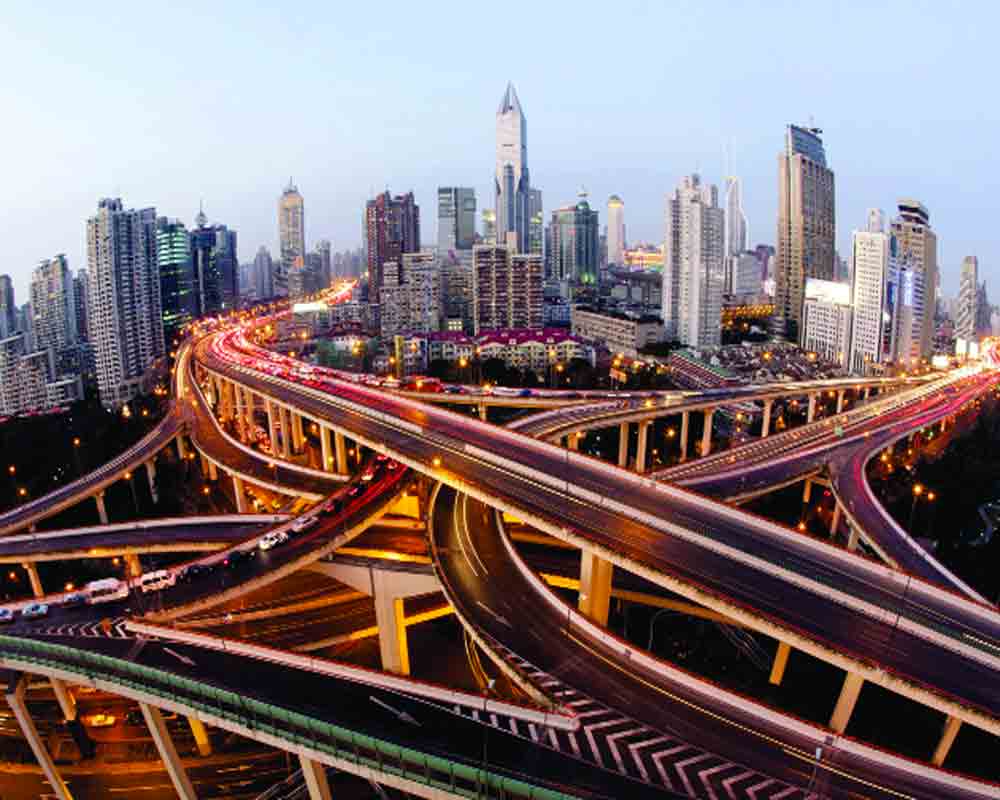China’s Belt and Road Initiative (BRI) is being perceived by many countries as a threat to their economies but for China it is a way to corner the US
While issuing a warning to the Western countries including America and the European Union against their concerted efforts of decoupling some nations from China to reduce their dependence on the Chinese economy through the Belt and Road (BRI) initiative, Xi Jinping emphasized mapping out the way forward policy to ensure the success of the gigantic project involving 3 Trillion USD investment in more than 150 countries in the world.
Amidst the negative reports of the Belt and Road Initiative (BRI) gradually losing its steam coupled with the economic slowdown in the country, China organised a mega show of 140 nations associated with the ambitious project to reaffirm its faith in its investment of over 1 trillion USD in ten years which was aimed at enhancing the economic cooperation besides generating momentum for new economic growth in the world. The critics visualised that the plan was aimed at recreating the ancient Silk Road to boost global trade infrastructure thereby helping China to spread its economic and geopolitical influence besides inspiring it to become a superpower in the world.
Xi exhibited his commitment during two days recently concluded conference in Beijing which also witnessed the appearance of Russian President Vladimir Putin for, the first time after the outbreak of the Ukraine War besides Sri Lankan President, Ranil Wickremasinghe, Pakistan acting PM, Anwar-Hul-Haq-Kakar and representatives of over 140 countries, 30 international organizations including state leaders, ministerial officials and representatives of the business sector, academia and non-governmental organisations.
India’s Security Concerns
India, boycotted BRI citing the security reasons h about the Chinese flagship 60 billion USD project, the China-Pakistan Economic Corridor (CPEC) which is being laid through Pakistan-occupied Kashmir (POK) in violation of sovereignty. China does not miss an opportunity to push its ambitious project of BRI hence a paragraph was inserted in the final draft of the New Delhi declaration issued at the end of the Shanghai Cooperation Organization (SCO) leaders’ summit held on July 4, 2023, which was duly rejected by India. An identical formulation was used by China during the Samarkand declaration in 2022 and India did not budge from its stand to oppose Xi’s pet project of BRI. India has been cautious to exclude such an initiative of BRI in the G20 draft. India is averse to Pakistan’s blind support to BRI which may pose a security threat as BRI passes through POK.
BRI Vs IMEEC
Keeping in view the sweet ties of India with signatories of the India-Middle east-Europe Economic Corridor (IMEEC)during the G20 summit including the United States, the EU, Italy, Germany, Saudi Arabia, the UAE, and France as a connectivity scheme which is aimed at boosting the economic integration of the nations like the Middle East (West Asia), South Asia, and Europe. The corridor’s areas of operations will be the ports, rail lines, shipping network and roads. Experts say that it will have Geo-political implications and the main aim is to counter the impact of BRI which is advancing despite its negative fallout on the economics of some countries.
BRI Strategy
Economists opine that owing to a slide in the domestic economy and an increase in default in repayment of huge loans by several nations due to several factors including the continuing impact of COVID-19, there seems to be a shift in the approach of Chinese strategists. China’s influence may further slide unless external loans and assistance poured into the kitty’s various nations attain its peak level in times to come. Crisis Due to ‘Hidden Debts’
President XI has presented an ambitious plan to ally the fear of “Hidden Debts” of BRI and an attempt by China to allure low-middle-income nations into a ‘Debt Trap Policy’ that is being exploited by the West and EU. According to a study undertaken by Aid Data, more than a third of the projects face such problems. A growing backlash has prompted some countries like Malaysia and Tanzania to cancel BRI deals. But observers have also raised concerns of possible economic coercion, where foreign governments feel pressured to follow Beijing's agenda or risk China pulling out of investment. Another study by Aid Data found that Chinese state-owned entities' loans to foreign governments found contract clauses that "potentially allow the lenders to influence debtors' domestic and foreign policies".
Economists say that President Xi's Expansion Policy of developing infrastructure through BRI spreading over 150 nations is intended to the fulfilment of the ambition to replace the United States as a Superpower. A huge investment of $ 1.4 trillion through BRI aims at creating a modern-day Silk Road connecting Asia, Africa and Europe. It has brightened the chances of walking into the Debt Trap Policy of China and countries like Pakistan have already become victims of this dangerous strategy. As per reports, South Asian Countries have been pushed into a debt trap policy and the fallout has been serious vis- a -vis accumulation of loans that have burdened their economies. Except for India and Bhutan, several nations have walked into the debt policy of China through BRI and signed a 25.4 billion USD agreement in 2013 which has slowed down and the same dilemma is being faced by Nepal.
(The writer is a political analyst and senior journalist, views are personal)
























